The correlation between trust and love is central to building healthy relationships. As the beautiful Zendaya once quoted, “Relationships without trust are like phones without service. And what do you do with a phone without service? You play games.” This hard-hitting fact perfectly summarizes what happens when there is no trust in the relationship.
Having learned some valuable lessons in the past when mistrust spread like wildfire in a relationship, I relate to it deeply. I believe trust is more important than love because love is blind, but trust isn’t. Trust is rational, while love is a rush. Trusting someone is a logical act, whereas the act of loving someone requires no control. You can fall in love with as many people as you want and as many times as your heart desires, but you need trust to stay in love and to support that love.
Have you been struggling with trust issues in a relationship and feel insecure about what the future holds for you and your partner? Allow us to help you see the impact of no trust on a romantic connection and find ways to remedy the situation, with insights from psychologist Jayant Sundaresan (Masters in Applied Psychology), who specializes in counseling for a range of relationship issues such as communication breakdown, expectation management, infidelity, separation, and divorce.
Can You Love Someone And Not Trust Them?
Table of Contents
Jayant says, “Trust helps us focus on our partner’s good aspects. Your partner will stand by you through thick and thin once the two of you have established a tremendous amount of trust in each other. This foundation is built slowly as you progress in mutual understanding. A relationship without trust is like a car without gas—it goes nowhere.
“You need a partner who listens to your innermost thoughts and feelings, who will understand them, and validate them. Distrust won’t allow you to open up to your significant other. When there is no trust in a relationship, you are neither open to receiving nor giving love. Both of you are limiting yourself from one another and curbing the growth of the relationship.
“You won’t believe the other person no matter how much proof of innocence they lay in front of you. A lot of heat and fire will surround the relationship, waiting to set ablaze to its entirety. No real movement happens in the relationship because no one wishes to move forward.”
Related Reading: The Foundation Of Your Relationship Is Weak, If You Can See These 8 Signs
So, can you love someone and not trust them? The simple answer is, no, you cannot because you need trust to be comfortable with one another. It makes you feel secure in your lover’s presence and fosters the faith that you rely on your partner to not hurt you. That said, there can be situations where you love someone and not trust them.
For instance, if your partner betrayed you in some way, you may not be able to turn off the feelings overnight. As much as you detest them for their deception, it’s annoying how much you still love this person. However, unless efforts are made to repair the connection and rebuild the trust, the relationship may not last very long. Love without trust is not enough to build a successful relationship. Eventually, the doubts and insecurities will engulf the bond.
15 Things That Happen When There Is No Trust In A Relationship
Trust takes time to build. Imagine you meet someone on social media. You start chatting with them constantly. You even talk to them on video calls. You know where they live and what they do for a living, yet you take your time before meeting them to safeguard against the risk of being scammed or ghosted. That’s because even though there may be a connection, a spark, you don’t trust them enough yet to let them into your life completely.
Likewise, trust is essential in all types of relationships. Whether you’re dating casually, are in a long-term relationship, or even married, you need to be able to trust your partner unequivocally to be able to find happiness and contentment with them. To understand why that is, let’s take a look at what happens when there is no trust in a relationship:
1. You can’t rely on each other
Jayant says, “Relationships without trust on both sides will have zero reliability. How do you move ahead in the relationship when you can’t rely on your partner? To keep a relationship going, you need to rely on one another. Unreliability can take place in many forms. Let’s say your partner promises to come back home for dinner on time, but every single day, they come back extremely late. An unreliable partner cannot be depended upon as they will say something but do the opposite of it. You can’t deepen your connection with your partners when their words and actions don’t align.”
Related Reading: 10 Important Components Of Trust In A Relationship
2. There is no safe harbor
Jayant says, “A relationship is like a safety blanket. A safe harbor you can come home to at the end of the day and feel secure and protected. There should be emotional safety in every relationship. We are all humans fighting against a billion things in our day-to-day lives. When there is no safe harbor, we don’t feel protected from harm and judgment. In a relationship without trust and respect, there will always be a lack of feeling of safety and belongingness. You might even feel that the other person is using you.”
When there is trust in a relationship, you come back home to a person who is willing to display their care and affection toward you. This love nurtures our being. But when trust is lacking, you don’t feel safe in your relationship. Slowly but surely, your bond rots away.
3. Breakdown of communication
Communication is the most important thing for any relationship to run peacefully and smoothly. Communication problems can affect intimacy and emotional connection, giving rise to a lot of conflicts. Suppose your partner is coming home late for a few consecutive days. You are curious, you are suspicious, but you don’t ask them a thing simply to avoid an unpleasant confrontation.
Instead, in your head, you start speculating scenarios of them cheating on you. If you bothered to ask them, you would probably find out that they have been assigned a new project that’s taking up a lot of their time. That’s exactly how poor communication feeds into trust issues in a relationship. This is how Jayant describes the collapse of communication:
- You won’t share with your partner about your dreams, your ambitions, and your fears
- When you stop communicating, you feel less connected with your partner with each passing day
- This will result in escalated conflicts even if the argument is about something insignificant
- You will feel as if you aren’t seen or heard
- You will constantly form a negative perspective of your partner even if they are well-intentioned
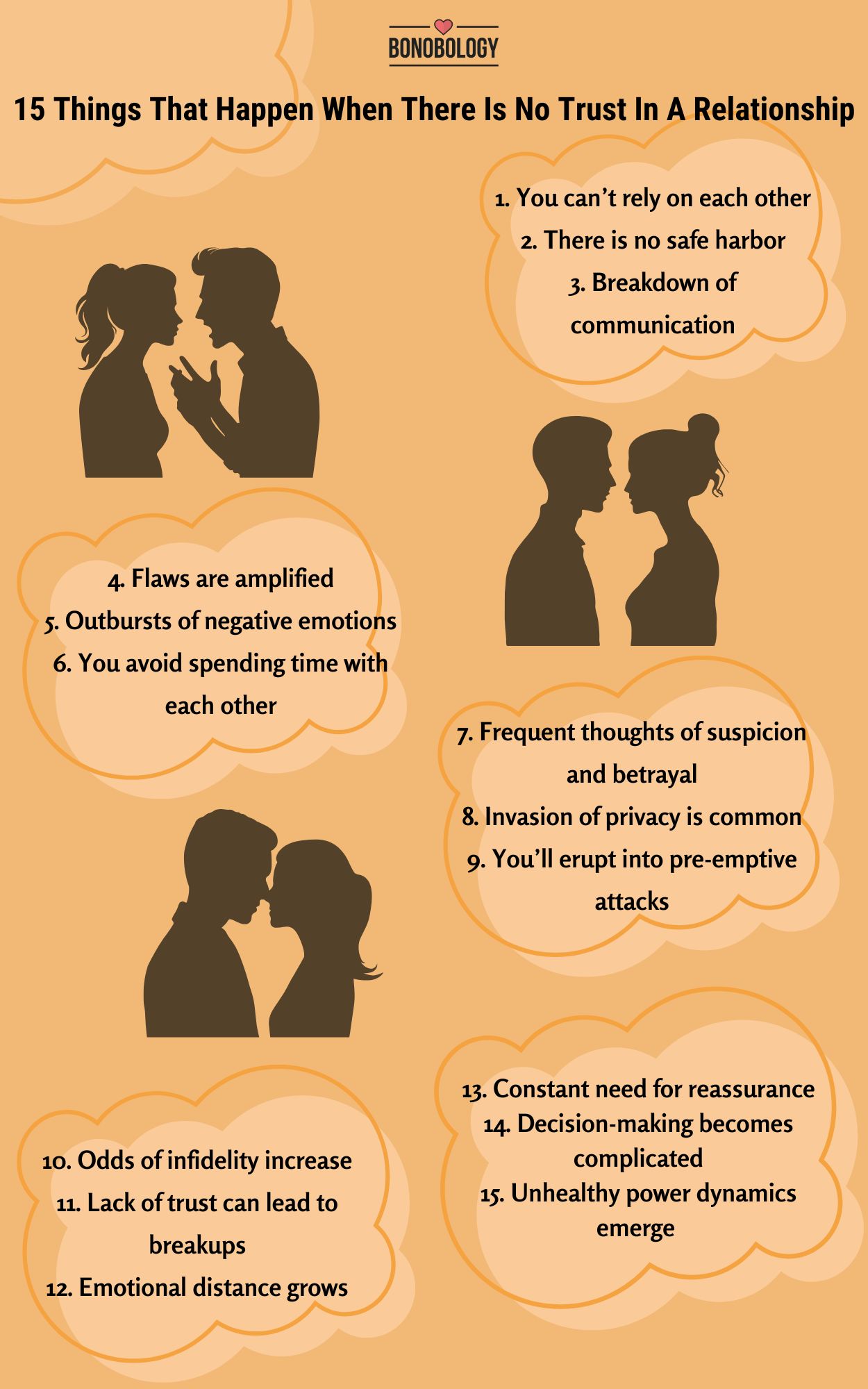
4. Flaws are amplified
Jayant shares a thought-provoking fact about flaws being amplified whenever you don’t trust your partner, amplifying even the most common relationship problems. He says, “All of us are imperfect. We are all born with flaws. But when there is no trust in a relationship, those imperfections are viewed with a magnifying glass. If your partner doesn’t trust you, they will always examine every little aspect of the things you do and the things you don’t do.
“Such a pessimistic attitude comes from a place of negativity where there is no trust. Trust is the central requirement in a relationship. It instigates a positive anticipation of wanting to be with someone. When your flaws are being sifted and inspected, it creates a damaging and harmful environment.”
5. Outbursts of negative emotions
When you love and trust someone and have a fairly healthy relationship, you tend to have honest and open conversations where you can address issues as they surface. On the flip side, when you stifle those issues instead of speaking up, you will soon have to face emotional flooding in the form of passive-aggressive anger and resentment toward your partner. According to Jayant, here’s what happens in a relationship full of miscommunication and mistrust:
- Because of all the negative emotions being swallowed instead of being shared with your partner, you will eventually adopt a passive-aggressive attitude
- You will blame your partner for every little inconvenience and most of your conversations might eventually turn into an argument
- You will be moody, you will cry, get furious, and flare up and the sole reason behind your bad behavior is nothing but difficulty in trusting your partner
Related Reading: 18 Signs He Never Loved You – And How To Get Over It
6. You avoid spending time with each other
You need to spend time with your partner to understand them better and to form a deeper bond. When you love someone, you can’t get enough of them. But in the absence of trust, spending quality time together can also become a struggle. Even when you’re together, you cannot really connect because the lack of trust leads to emotional walls between you and your partner.
Jayant says, “In a relationship without trust and respect, you won’t make any healthy compromise for the other person. This will lead to countless differences of opinion. These fights will make you spend less time with your partner, and you will feel trapped in the relationship.”
7. Frequent thoughts of suspicion and betrayal

Jayant says, “Let’s say you and your partner go to a party. The two of you are in different rooms. Your mind starts to wander and is filled with negativity regarding your partner. You’re thinking about what they must be doing. You are thinking maybe your husband is talking to another woman, or that your wife has sneaked away with someone else. Although both of you are at the same party, you imagine them cheating on you just because your eyes can’t see them. You question your partner’s morality and sincerity toward you even when they are completely loyal. When there is a lack of trust in a relationship, you will assume the worst possible things about them.”
8. Invasion of privacy is common
Jayant elaborates on the previous point, “In relationships without trust, there might be monitoring of your personal space and time. Suppose you are a few minutes late from work. You will have to justify those missing minutes. You will be expected to account for those minutes promptly.
“Your personal space will be invaded. Your social media will be supervised. Your phone calls and messages will be spied upon even though checking a partner’s phone is never a good idea. Let’s say you are the one who doesn’t trust your partner. You become a watchdog. Once your partner finds out that you are keeping an eye on all their actions, very soon, they will start to hate you. Owing to your incessant investigations, your partner will feel stifled in this distrustful atmosphere.”
Related Reading: My Marriage Is Falling Apart – Expert Suggests 13 Ways To Turn It Around
9. You’ll erupt into pre-emptive attacks
Pre-emption means doing something before the other person. Suppose someone is planning to hurt you. But you hurt them before they can do any harm to you. You essentially take an action to prevent them from taking the same action. Jayant says, “You think, ‘Let me do that to you before you do that to me. After all, it was your negative intent which I pre-empted.’ It’s basically an ‘I will trick you before you trick me’ mindset. Pre-emptive behavior stems from fear. If you fear that your partner may cheat on you, then you will cheat on them. Because you want to hurt them before they hurt you.”
10. Odds of infidelity increase
The odds of your partner having an affair are really high when there is no trust in a relationship. Let’s just take a moment to point out the irony here. All these days you have been suspecting and may even falsely accusing your partner of being disloyal when they were truly innocent. In the end, it’s your constant unfair allegations that push them toward infidelity. Jayant elaborates on the scenario of how infidelity creeps into a relationship:
- When one partner receives so much pessimism in a relationship, meeting new people will feel like a breath of fresh air
- That fresh air will make them realize that people can be different and relationships can be happier
- Due to trust issues in the relationship, they might end up doing something that they never intended to
- Distrust will push them into the arms of another person where the conversations are easy, more comfortable, and relaxed
- They will see the contrast between their relationship and this new dynamic, realize how a healthy relationship works, and will now seek happiness with this new person
11. Lack of trust can lead to breakups
Ultimately, it all boils down to one question, “Can you love someone and not trust them?” Well, we are sorry to break it to you, but love without trust is not the strongest force to keep a relationship together in the long run. If you can’t trust a word coming out of your partner’s mouth, if you feel insecure about their commitment toward the relationship, if neither of you is ready to take the first step toward rebuilding trust, perhaps it’s better to put yourself out of your misery and break it off.
Addressing the question of why is trust important in a relationship, Jayant says, “Relationships without trust won’t progress. Due to the inability to grow and all the self-sabotaging behaviors, you won’t be able to forge a deeper connection. Unless both parties make efforts to build trust and find ways to come out of mistrust, there will be an inevitable bad end to the relationship.”
12. Emotional distance grows

When you don’t know how to trust your partner, it can be hard for you to stimulate vulnerability in the relationship. You may avoid sharing thoughts, feelings, struggles, and hopes, out of a fear of judgment or the fear that your partner may use these vulnerabilities against you.
Explaining how this impacts the relationship quality, Jayant says, “A lack or breakdown of trust hurts emotional intimacy between a couple. An inability to be vulnerable with each other leads to higher and higher emotional walls between partners, which can become impossible to breach.” This can leave both partners feeling isolated and disconnected from each other.
Related Reading: Lack Of Affection And Intimacy In A Relationship — 9 Ways It Affects You
13. Constant need for reassurance
When you don’t trust your partner to do right by you, to show up for you, to not betray you, insecurities begin to take hold. These insecurities trigger an unrelenting need for validation or reassurance of the other’s love, loyalty, or commitment
“This constant need for reassurance and validation can wear down a relationship. The partner being asked to offer constant affirmations may experience exhaustion and frustration, whereas the person who seeks it may feel disappointed or insecure every time this need is not adequately met,” explains Jayant. Now, it’s not hard to see how this can become overwhelming for both partners.
14. Decision-making becomes complicated
Making short-term and long-term decisions together is an integral part of being in a relationship, and that requires a certain degree of trust. You have to believe that your partner has your best interests at heart to be able to take that leap of faith. In relationships without trust, this can become a significant challenge.
When you don’t know how to trust your partner, every choice, be it financial decisions, parenting, or even sharing responsibilities for planning a holiday, can become a source of stress, anxiety, and conflict, leading to a tumultuous relationship. “Decision-making when there is no trust in a relationship can feel like navigating a battleground, with you and your partner on opposing sides,” says Jayanat.
15. Unhealthy power dynamics emerge
A lack of trust can turn a relationship into a dance of one-upmanship, where one partner is always trying to dominate the other to deal with their own insecurities. This sets in motion a power struggle that creates an imbalance in the relationship dynamics, making partners resent each other. “Skewed power dynamics are a telling indicator of trust issues in either one or both partners, who instead of working toward establishing a partnership of equals operate from a place of threat or insecurity, always seeking control to protect themselves,” says Jayant.
Related Reading: Power Dynamics In A Relationship – Signs, Types, And How To Find A Balance
How To Build Trust In A Relationship — 7 Expert-Backed Tips
As is abundantly clear, it’s not possible to build a long, enduring relationship without trust. The question of can you love someone and not trust them is essentially moot because, in the absence of trust, a relationship will inevitably be fraught with a host of problems. If you or your partner struggle with trust issues but love and value each other enough to want to work through your problems and build a wholesome connection, you know what you need to do — figure out how to build trust in a relationship.
Given that an inability to trust is often deep-rooted in emotional traumas, either from your past or your current relationship, it’s not simply a matter of snapping out of it. Building trust in a relationship takes real work and consistent effort from both partners. That said, it’s not impossible either. With these expert-backed tips, you can learn how to trust your partner:

1. Practice transparency
Trust is built on honesty. So, if you’re wondering how to overcome trust issues, you need to work toward fostering openness and transparency about your feelings, intentions, and actions, especially in difficult situations. Be forthright and honest, no matter how difficult the truth is.
Jayant advises, “Fostering trust means building a sense of reliability and honesty. That can only happen when you share your thoughts and experiences with your partner without withholding important details, take accountability for your actions, and accept instead of covering them up.”
Related Reading: Loyal Relationship – Meaning And Characteristics
2. Follow through on promises
Jayant says, “For building trust in a relationship, it’s absolutely vital that you keep your word and follow through on your promises consistently. If you’ve made a commitment to your partner, be it about showing up for dinner on time or not lying to them anymore, hold up your end. Every time you follow through on a promise, you show your partner that they can count on you.”
At the same time, it’s important to not over-commit or make promises you can’t keep just to appease your partner or resolve a conflict. When you do that and fail to uphold your end, trust takes a hit. If you ever find yourself in a situation where you cannot do something you have committed to, tell your partner about it and explain why.
3. Communicate openly and regularly
How to learn to trust again, you wonder? If there is one magic solution to your conundrum, it is honest and open communication. “Honest and frequent dialogue lays the foundation of trust in a relationship,” says Jayant. So, make time to talk to each other every day, even about small or seemingly insignificant things. Share your emotions, and encourage your partner to do the same. When you begin to feel that you can talk to each other about anything and everything without fear of judgment or backlash, trust begins to blossom.
4. Learn to be vulnerable with each other
Jayant says, “Vulnerability is the womb from which love and trust draw life. You have to open up to each other in ways you do not with others to foster an unshakable emotional connection built on a solid foundation of trust.” Being vulnerable means,
- Sharing your fears, insecurities, and true selves with other
- Trading personal stories, worries, or dreams that you do not usually talk about
- Make each other feel safe in opening up
Related Reading: What Is Forgiveness In Relationships And Why Is It Important
5. Apologize and forgive genuinely
No matter how much you try to do the right thing, mistakes happen. However, not every mistake has to chip away at the trust in your relationship. If handled right, mistakes can be an opportunity to strengthen your relationship and your trust in each other.
Now, what does “if handled right” mean? It means that a mistake must be followed up by a sincere apology from the erring partner and a genuine effort to forgive, from the other. This paves the way for rebuilding trust after a breach. On how to apologize and forgive, Jayant advises, “Apologize without justifying your actions when you’ve hurt your partner. Similarly, when your partner apologizes, practice forgiveness rather than holding grudges.”
6. Be consistent in your actions
Consistency in behavior creates a sense of security in a relationship, and that’s why it becomes a crucial component of healing when you’re trying to figure out how to overcome trust issues. Jayant says, “When you know what to expect from your partner and vice versa, trust comes easily. To achieve consistency in behavior and actions, you must avoid unpredictable behaviors, emotional outbursts, or responses instead strive for emotional steadiness.”
7. Respect boundaries
Setting boundaries and respecting them is a surefire way of fostering trust in a relationship. When you know your partner respects your personal, physical, or emotional boundaries, you feel safe in the relationship, which, in turn, enhances trust and mutual respect.
Jayant says, “Have a conversation about what boundaries are important for you and your partner, and make sure you honor them. Respecting boundaries shows that you value your partner’s individuality and autonomy, which strengthens trust and mutual respect.” By incorporating these trust-building tips into your relationship, you can create a solid foundation of trust that fosters love, respect, and emotional intimacy.
Key Pointers
- Without trust, you won’t be able to rely on your partner for anything and won’t feel secure about their intentions
- Due to the lack of trust, you eventually stop communicating with each other and start living with biased speculations and doubts
- When there is no trust, your partner’s minor flaws seem to look giant and you keep an eye out for pre-emptive attacks before they can hurt you
- Untrusting partners might keep a tab on each other, invade privacy, and completely start avoiding each other’s company
- Without trust, infidelity might creep into the relationship, eventually breaking it down
- You can address the lack of trust in your relationship by practicing transparency, following through on promises, fostering open and honest communication, and setting and respecting boundaries
Frequently Asked Questions
1. Should you stay in a relationship without trust?
The answer can’t be a straight yes or no. If your partner has given enough reasons for you to doubt them and their intentions, then maybe you are right to wonder if you should stay in the relationship. But if you don’t trust your partner because it’s all in your head and they didn’t do anything to deserve your skepticism, then you need to fix it before they leave you. Try to find ways to build trust with them if you don’t want the relationship to end.
2. Can a person love without trust?
Love can mean different things to different people. If it’s just physical attraction or infatuation, then love can work without trust. But if it’s a committed relationship with both of you demanding trust from one another, then the answer is no. Love is a feeling that comes and goes, but trust, once lost, is hard to find again.
3. What lack of trust do to a relationship?
It infuses your relationship with bitterness, conflicts, relentless wars of words, and mental agony for both partners. You will constantly be in a state of uncertainty and wariness about your partner’s intentions, their whereabouts, and whatnot. “Is she having an affair?”, “Will he ever introduce me to his family?” — You might find yourself haunted by a series of disturbing thoughts like these when there is no trust between you and your partner.
Final Thoughts
Why is trust important in a relationship? Because in its absence, you will drive your partner away and won’t get your happily-ever-after if you have cynical thoughts about them. Constant suspicion, lack of communication, and outbursts of emotions will eventually take a toll on your relationship. However, it’s not impossible to remedy the situation and figure out how to build trust in a relationship. To rebuild trust, begin with small steps like discussing your inhibitions with your partner, active listening, spending more time with each other, and keeping an open mind. The important thing is, you both work as a team to win each other’s trust and keep the relationship alive.
Expert Helps To Figure Out Why You Have Commitment Issues And What You Can Do
Intimacy Anorexia, Causes, And Impact On Romantic Relationships – And Ways To Deal With It
Your contribution does not constitute a charitable donation. It will allow Bonobology to continue bringing you new and up-to-date information in our pursuit of helping anyone in the world to learn how to do anything.




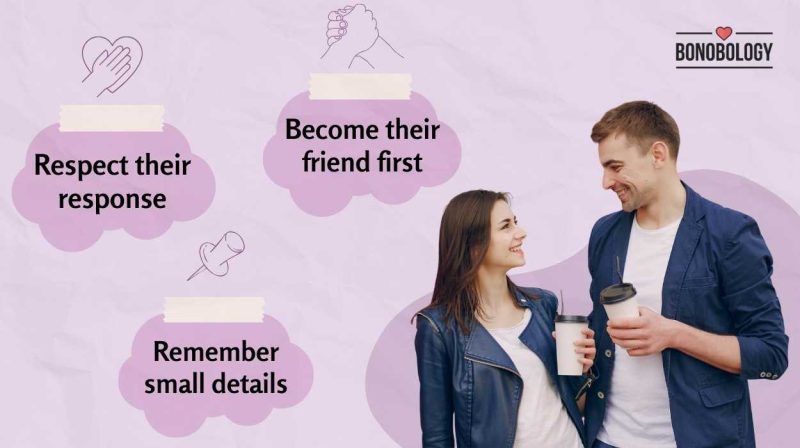

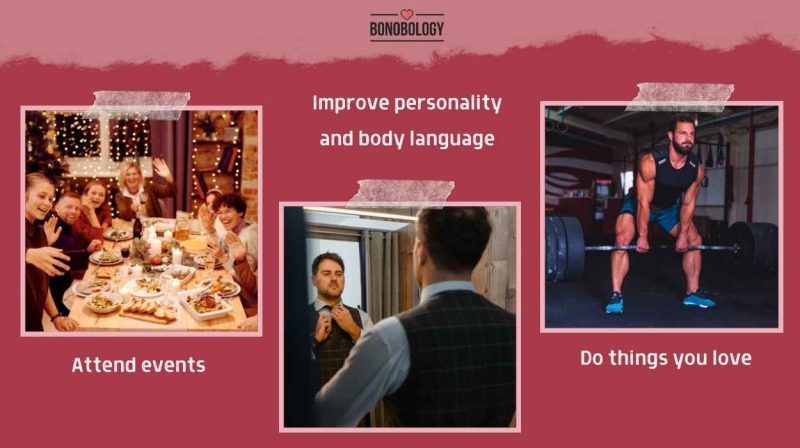



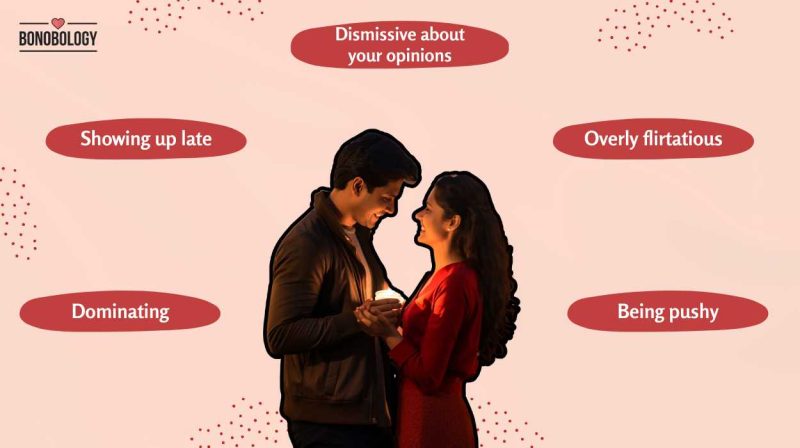

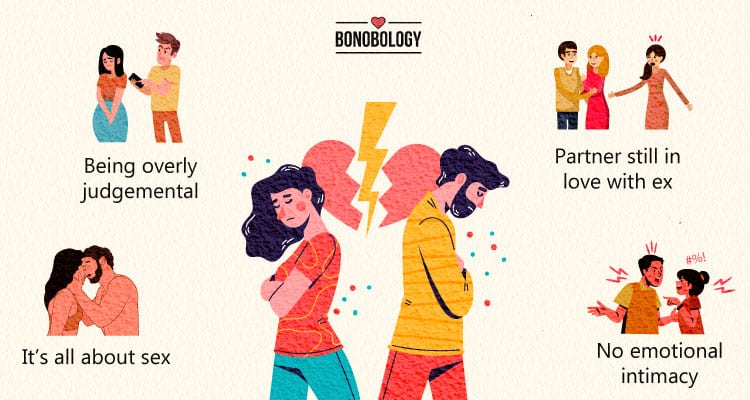
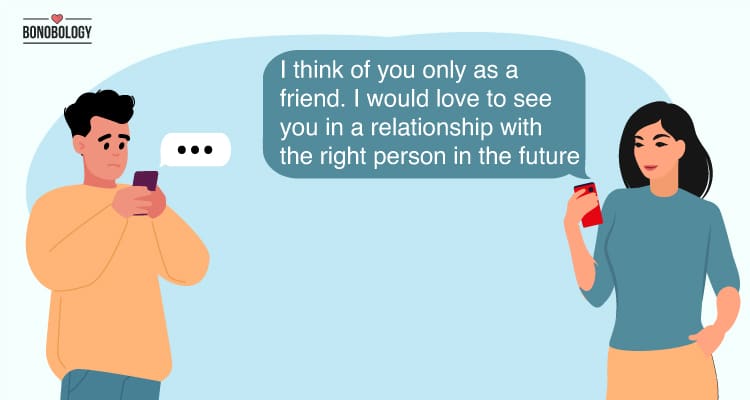
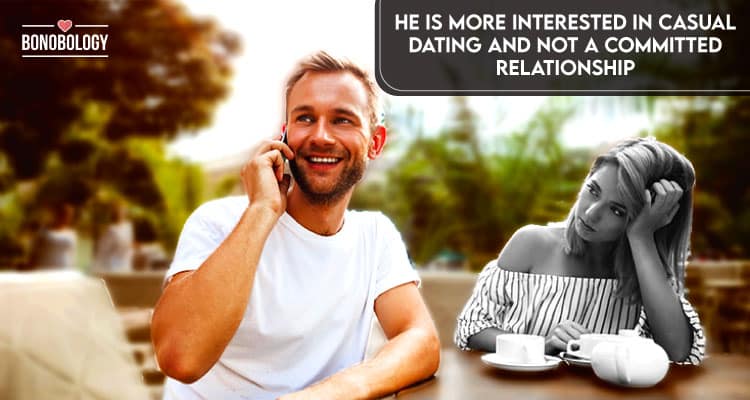
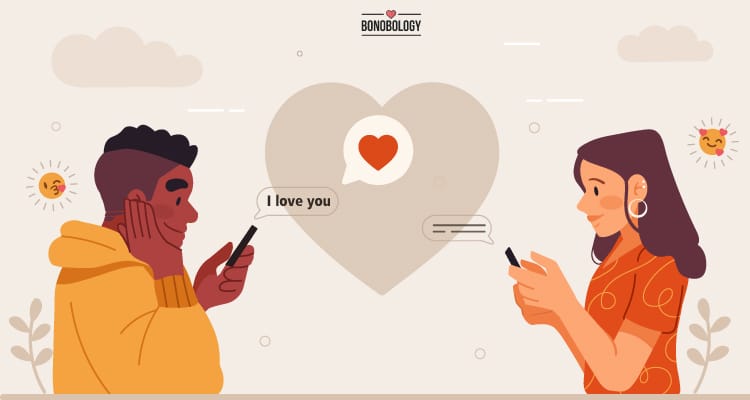


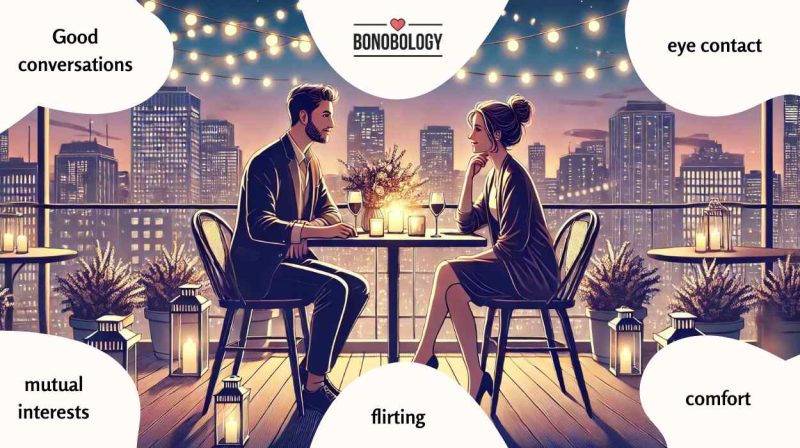




Featured
Dating With Intention: Meaning And Rules To Set You Up For Success
How To Ask Out Your Crush: Step-By-Step Guide To Success
How to Start A Conversation With Your Crush – Pro Tips for Every Situation
I Need A Girlfriend: 9 Things To Consider And 11 Tips On How To Find One
How To Approach A Girl The Right Way – Pro Tips And Conversation Starters
The Ultimate Tips On How To Ask A Girl To Be Your Girlfriend
Is It A Date Or Are You Just Hanging Out? 17 Helpful Tips To Know
21 Huge First Date Red Flags You Should Be Wary Of
Healthy Flirting Vs Unhealthy Flirting – 8 Key Differences
15 Early Signs A Relationship Will Not Last
17 Tips On How To Reject Someone Nicely—With Examples
Why Does He Keep Me Around If He Doesn’t Want A Relationship?
When A Guy Says I Love You Over Text – What Does It Mean And What To Do
15 Physical Signs A Woman Is Interested In You
How To Keep A Guy Interested? 20 Ways To Keep Him Engaged
15 Strong Signs Of Chemistry On A First Date
How To Ask A Guy To Be Your Boyfriend? 23 Cute Ways
18 Signs He Doesn’t Want A Relationship With You And What To Do
15 Spiritual Signs Your Ex Is Manifesting You
13 Female Physical Features That Attract A Man Immensely